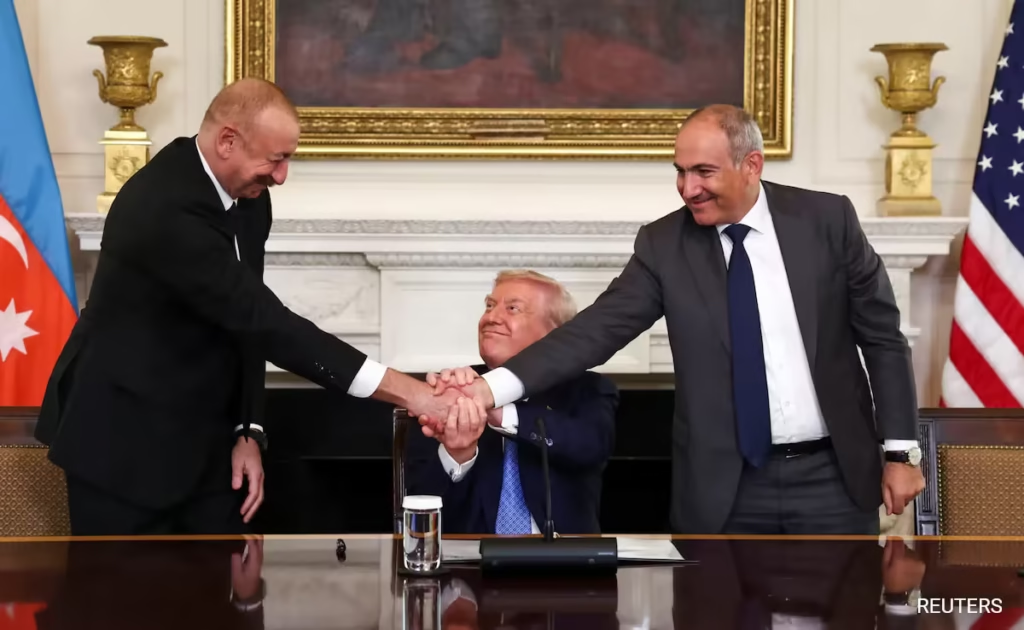Historic Peace Accord in the Caucasus
Armenia and Azerbaijan have reached a landmark peace agreement, facilitated by U.S. President Donald Trump, marking an end to decades of conflict. The leaders of the two South Caucasus nations, Armenian Prime Minister Nikol Pashinyan and Azerbaijani President Ilham Aliyev, gathered at the White House for a signing ceremony. Both leaders praised Trump’s mediation efforts, suggesting he deserves a Nobel Peace Prize for his role in brokering the deal.
Commitment to Lasting Peace
The agreement signifies a commitment to cease all hostilities permanently, fostering open commerce, travel, and diplomatic relations while respecting each other’s sovereignty and territorial integrity. Despite the celebratory atmosphere, details regarding the enforceability of the agreement remain vague. President Trump expressed confidence in the future relationship between Armenia and Azerbaijan, emphasizing his readiness to mediate any potential disputes.
Background of Conflict
The conflict between Christian-majority Armenia and Muslim-majority Azerbaijan has its roots in territorial disputes over ethnic enclaves. The two nations have engaged in wars over the Karabakh region, which Azerbaijan reclaimed from Armenian forces in 2023, leading to a mass exodus of ethnic Armenians.
A New Era of Cooperation
The peace agreement includes establishing a transit corridor through Armenia to connect Azerbaijan with its exclave of Nakhchivan, known as the “Trump Route for International Peace and Prosperity” (TRIPP). This corridor is expected to enhance regional connectivity and economic development. Turkey has welcomed this progress towards lasting peace.
Implications for Global Politics
The United States emerges as a strategic partner for Armenia, with significant geopolitical implications. The deal is seen as a setback for regional powers like China, Russia, and Iran. While this agreement marks a significant diplomatic achievement for Trump, challenges remain in resolving other global conflicts.
